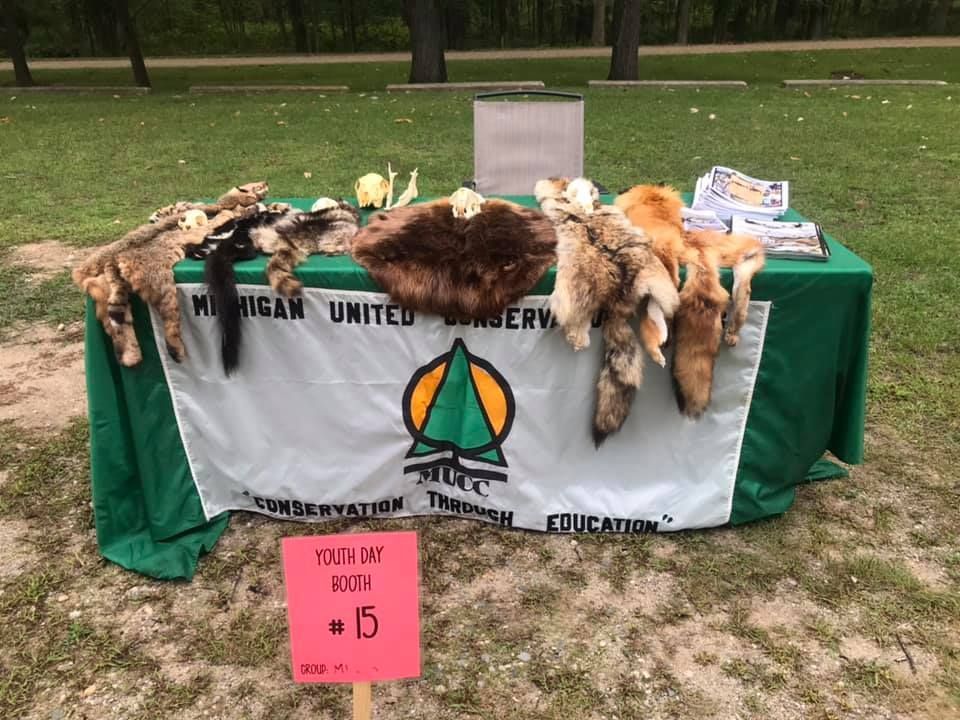In the Field: Catching up with MWC
The last couple of weeks have been filled with events and outreach for the Michigan Wildlife Cooperatives Program (MWC). I have covered the state with different partners and had the privilege to talk with hundreds of kids and adults. These busy weeks have proven to me (again) how diverse my role is and how much fun that is. I hope you enjoy catching up with the program and where I have been through this blog!
Pheasants Forever District Meetings
Each year, Michigan Pheasants Forever holds district meetings for each Chapter to attend. The main purpose of these meetings is to showcase the banquet packages that are sold. The four Michigan PF staff members attended every meeting to talk about their programs, what we have accomplished this year and what our future goals are. MWC highlighted the Pheasant Rendezvous, Habitat Series, workshops that took place in 2019.
Ottawa County Field Day
After attending a PF District meeting, I was invited to an agricultural field day by a Chapter member. The partnership between agricultural producers and the cooperatives program has been a long-standing one and we hope to expand it in the future with a Precision Ag workshop. Attending this field day was a great opportunity to meet with landowners on the west side of Michigan, promote MUCC and the program and also get a sense of the current interest in conservation practices as they relate to agriculture. MUCC’s AmeriCorps member, Autumn, was also able to attend and gain some of her first agriculture experience.
Barry County Youth Day
On September 7, the Barry Conservation District and partners hosted their annual youth day. The event is held to introduce and excite kids about outdoor recreation activities like fishing, hunting, trapping, shooting sports and more. The MUCC table was filled with animal pelts, TRACKS magazine and camp information.
Over 700 kids walked through the event and 540 adults.

Great Outdoor Jamboree
The Jamboree is an annual event put on by Pheasants Forever. Multiple organizations get together to host a full day of outdoor learning and activities for kids of all ages. There was everything there from the PF shooting trailer to duck ID with MUCC.
There was even an opportunity to participate in a live youth chukar hunt with field guides and dogs. Any kid ages 12-17 could hunt as long as they had their hunter safety certificate.
Upland Habitat Field Day
I am privileged to work closely with Michigan’s five Farm Bill Biologists. Recently, Hunter Salisbury (Sanilac/Lapeer), hosted a habitat event at Seven Ponds Nature Center. Topics included Michigan’s grassland history, restorations, landowner opportunities, cooperatives, grass ID and a field tour.
Attendees ranged from small backyard habitat enthusiasts to large scale landowners. Having a diverse crowd offers the opportunity to share how cooperatives can help both types of conservationists.
Oakland Habitat Day
The Genesee Conservation District held a habitat day and invited me to speak about cooperatives. The location was a fantastic example of multiple ecosystem types working together on one property. Grasslands, woodlands and wetlands were all key features and well managed.
This property also promoted the power in conservation partnerships because of the many restoration projects they had completed with other groups and organizations.
It is certainly the season for field days and outreach! Thank you to the many organizations and partners that invited me to their wonderful events. These summaries are brief but the impact you have all had on your communities is lasting and I am honored to be a part of it. Stay tuned for more updates!
The post In the Field: Catching up with MWC appeared first on Michigan United Conservation Clubs.
Recent Posts



